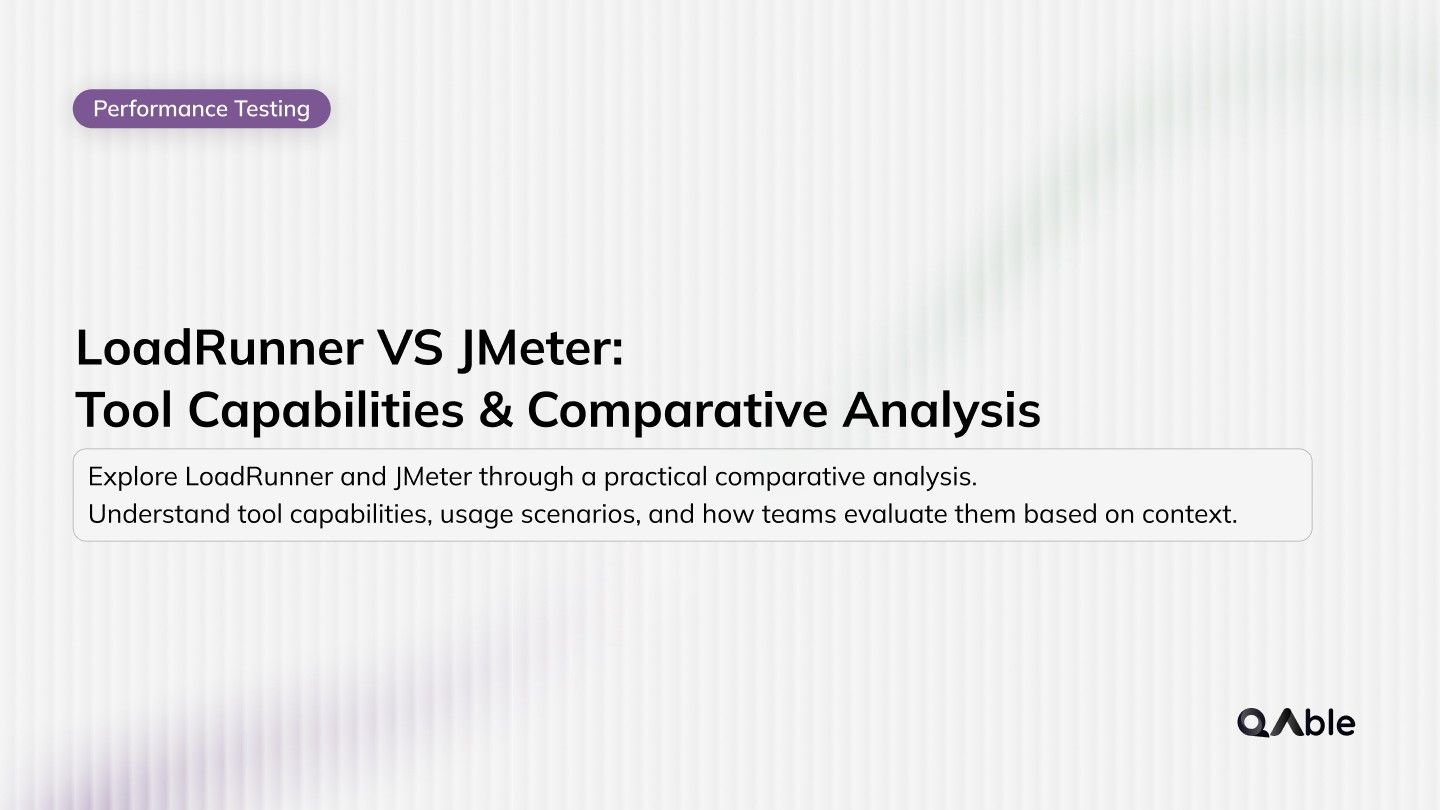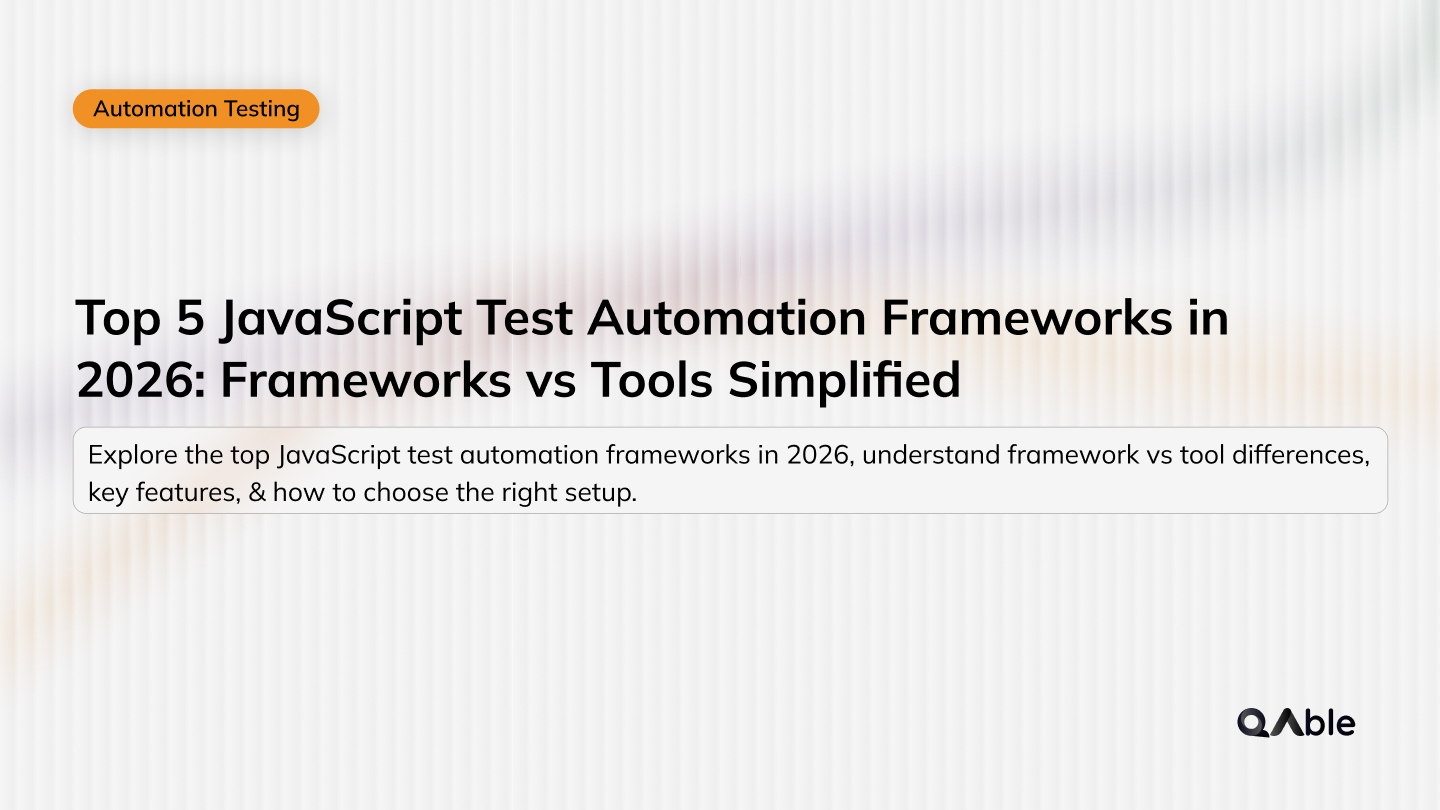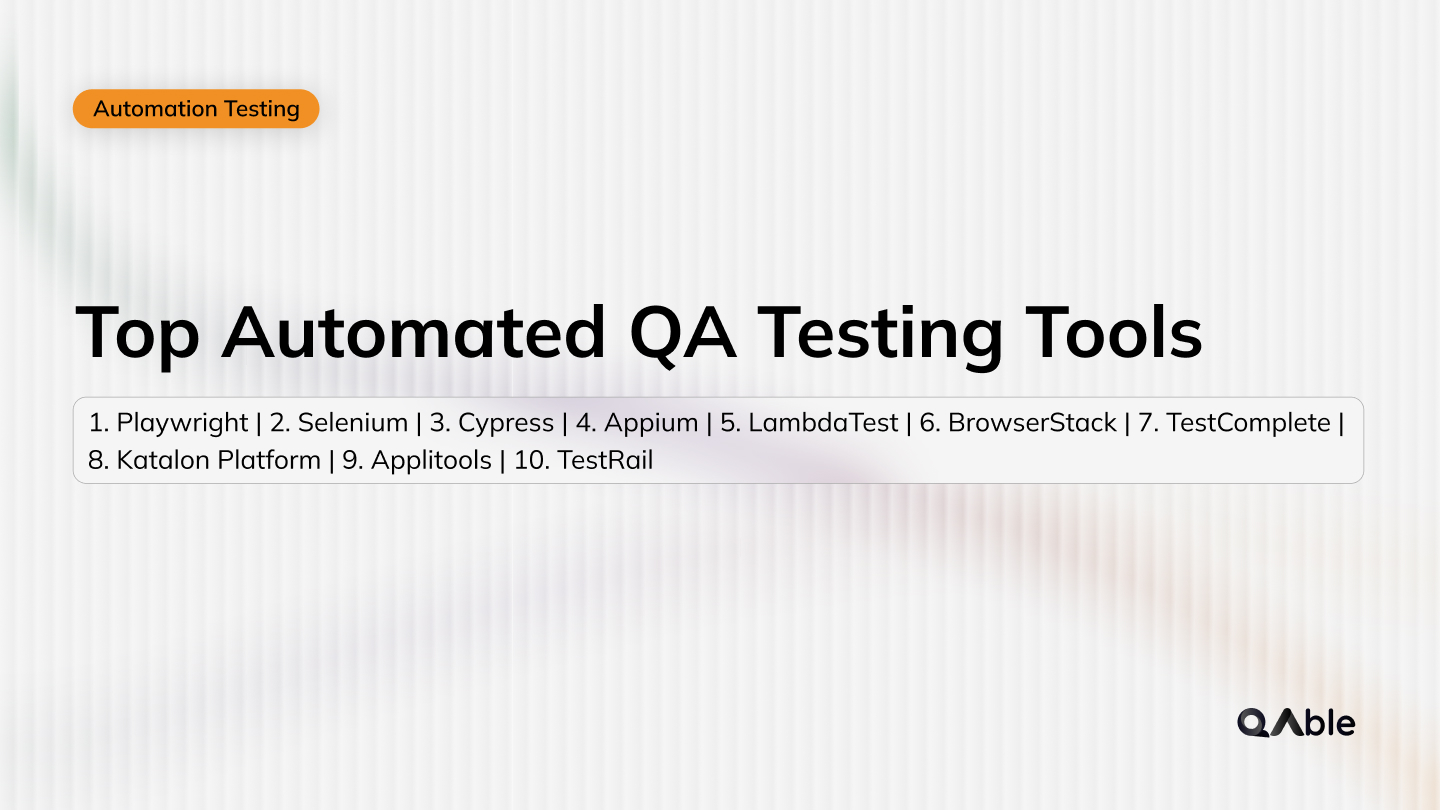Table of content
SHARE THIS ARTICLE
Is this blog hitting the mark?
Contact Us
Table of Contents
- Understanding AI in Mobile App Testing
- Popular AI Tools for Mobile App Testing
- Practical Tips for Implementing AI in Mobile App Testing
- Real-Life Success Stories
- How We Can Help You
- FAQs
Quality assurance (QA) is the unsung hero of mobile app development. It ensures that your app functions flawlessly, delights users, and avoids embarrassing glitches. But how can we elevate QA to new heights? Enter AI—the game-changer that’s reshaping the testing landscape.
Why QA Matters
Imagine launching an app without proper QA. It’s like serving a gourmet meal with a side of food poisoning. Users expect seamless experiences, and QA ensures just that. From functionality to security, QA keeps your app in top shape.
The AI Revolution
Now, let’s talk about AI. It’s not just a buzzword; it’s a powerhouse. AI algorithms learn from data, adapt, and make decisions—sometimes better than humans. In mobile app testing, AI brings efficiency, accuracy, and innovation.
Our Friendly Journey Ahead
Buckle up! We’re diving into the world of AI-driven testing tools, practical tips, and real-life success stories. By the end of this post, you’ll be ready to embrace AI like a pro.
Stay tuned for the next section where we explore the nitty-gritty of AI in mobile app testing!
Understanding AI in Mobile App Testing
Defining AI in Testing
Artificial Intelligence (AI) refers to the ability of machines or software to perform tasks that typically require human intelligence. In the context of testing, AI algorithms analyze data, learn patterns, and make informed decisions, all without human intervention.
The Role of AI in Testing
- Automating Repetitive Tasks:
- QA engineers spend hours executing repetitive test cases. AI can automate these tasks, freeing up valuable time for more complex activities.
- Imagine an AI bot running through hundreds of test scenarios while you sip your coffee. Bliss!
- Improving Accuracy:
- Humans can miss subtle defects or overlook edge cases. AI, on the other hand, is relentless in its scrutiny.
- AI-driven tools catch those elusive bugs, ensuring higher test accuracy.
- Enhancing Test Coverage:
- Traditional testing often struggles with comprehensive coverage. AI can explore vast combinations of inputs, uncovering hidden issues.
- It’s like having a team of testers with infinite patience and memory.
Benefits of AI-Driven Testing Tools
1. Speed and Efficiency:
- AI bots execute tests faster than any human. They’re like the Usain Bolt of testing.
- Rapid feedback means quicker bug fixes and shorter release cycles.
2. Predictive Analytics:
- AI analyzes historical data to predict potential defects or areas of risk.
- It’s like having a crystal ball that whispers, “Hey, watch out for that login screen!”
3. Adaptability:
- AI adapts to changes in the app, whether it’s a new feature or a revamped UI.
- No more manual test script updates—AI rolls with the punches.
4. Continuous Learning:
- AI models learn from each test run, improving over time.
- It’s like having a tireless apprentice who gets smarter with every bug squashed.
Stay tuned for the next section where we explore popular AI tools for mobile app testing!
Also Read: A Guide to AI Software Testing for Software Applications
Popular AI Tools for Mobile App Testing
1. Test Automation Frameworks
Appium, Espresso, and XCUITest
- Appium: This open-source framework allows cross-platform testing (iOS and Android) using the same test scripts. AI can enhance Appium by:
- Dynamic Element Identification: AI algorithms can intelligently locate UI elements even when their properties change.
- Self-Healing Tests: AI detects and adapts to UI changes, reducing maintenance efforts
- Espresso (Android) and XCUITest (iOS): These native testing frameworks benefit from AI in:
- Test Scenario Generation: AI can analyze app behavior and generate relevant test scenarios.
- Prioritizing Test Cases: AI identifies critical paths for efficient testing.
2. Visual Testing with AI
Applitools and Percy
- Applitools: AI-powered visual testing detects UI regressions across different screen sizes, browsers, and devices.
- Example: Detecting misaligned buttons or broken layouts after code changes.
- Percy: Integrates with your existing test suite to capture visual snapshots of UI components.
- Example: Ensuring consistent branding across app screens.
3. Behavior-Driven Testing (BDT) with AI
Collaboration and Natural Language Processing
- BDT: A collaborative approach involving developers, testers, and stakeholders.
- AI and NLP: AI analyzes natural language requirements and generates BDT scenarios.
- Example: Translating user stories into executable test cases.
4. Security Testing with AI
OWASP ZAP and Contrast Security
- OWASP ZAP: An AI-driven security tool that identifies vulnerabilities (e.g., SQL injection, XSS).
- Example: Scanning APIs for security flaws.
- Contrast Security: Leverages AI to detect runtime vulnerabilities.
- Example: Identifying insecure dependencies.
Remember, these tools aren’t just for tech wizards—they’re for anyone passionate about delivering high-quality apps. 🚀📱
Also Read: AI in Software Testing: Where is it now & where it will be
Practical Tips for Implementing AI in Mobile App Testing
1. Start Small: Gradual Adoption
- Experimentation: Encourage teams to dip their toes into the AI pool. Start with small projects or specific features.
- Proof of Concept (PoC): Create a PoC to demonstrate AI’s value. Automate a repetitive task or validate a hypothesis.
- Incremental Integration: Integrate AI features into existing test suites step by step. Don’t overwhelm your team—think baby steps.
2. Data-Driven Testing: Fuel for AI
- Data Collection: AI thrives on data like a plant thrives on sunlight. Gather relevant data—test cases, user interactions, and app behavior.
- Quality Data: Ensure data quality. Garbage in, garbage out—remember that saying?
3. Collaboration and Training
- Team Synergy: Break down silos. Testers, developers, and data scientists should collaborate seamlessly.
- AI Literacy: Train testers on AI concepts. Demystify terms like machine learning, neural networks, and algorithms.
- Continuous Learning: AI evolves. Keep your staff informed about the newest advances.
4. Monitoring and Continuous Improvement
- AI Models in Production:
- Monitor AI models post-deployment. Detect anomalies, biases, or performance degradation.
- Imagine AI as a pet—you feed it, groom it, and watch for any signs of trouble.
- Feedback Loop:
- Collect feedback from testers and end-users. AI learns from mistakes and successes.
- It’s like teaching a child—reinforce good behavior and correct missteps.
Remember, AI isn’t a magic wand; it’s a tool that amplifies human efforts. So, let’s embrace it wisely! 🤖✨
Real-Life Success Stories
1. Facebook: AI-Driven Regression Testing
- Challenge: Facebook’s massive codebase required extensive regression testing after every code change.
- Solution: They implemented AI-driven regression testing using a tool called “Sapienz.”
- Impact:
- Efficiency: Sapienz automatically generates test cases, reducing manual effort.
- Accuracy: It catches regressions faster, preventing issues from reaching users.
- Quality: Facebook’s app remains stable despite frequent updates.
2. Google: AI for Accessibility Testing
- Challenge: Ensuring accessibility compliance across Google’s products.
- Solution: Google integrated AI algorithms to identify accessibility issues.
- Impact:
- Efficiency: AI scans UI elements for accessibility violations.
- Accuracy: It detects issues that manual testing might miss.
- Inclusivity: Google’s apps are more accessible to users with disabilities.
3. Airbnb: AI-Powered Test Case Prioritization
- Challenge: Airbnb faced a growing number of test cases, leading to longer test cycles.
- Solution: They used AI to prioritize test cases based on risk and impact.
- Impact:
- Efficiency: Faster test execution by focusing on critical scenarios.
- Accuracy: High-risk areas receive more attention.
- Time Savings: Reduced testing time without compromising quality.
4. Microsoft: AI-Enhanced Security Testing
- Challenge: Identifying security vulnerabilities in complex software.
- Solution: Microsoft leveraged AI tools like “Project Springfield.”
- Impact:
- Efficiency: AI fuzz testing explores edge cases, finding vulnerabilities.
- Accuracy: It uncovers subtle security flaws.
- Security: Microsoft products are more robust against attacks.
These success stories demonstrate that AI isn’t just a buzzword—it’s a game-changer for testing.
How We Can Help You
At QAble, we’re not just about testing; we’re about crafting tailored solutions for quality mobile apps. Our AI-integrated testing services empower you to:
- Efficiency Boost: Let AI handle the repetitive tasks while your team focuses on innovation.
- Precision Matters: Bugs don’t stand a chance—we ensure pixel-perfect apps.
- Innovation Unleashed: Explore AI tools like Appium, Applitools, or OWASP ZAP. Stay ahead of the curve.
Your Turn: Embrace the AI Wave!
- Collaborate: Bring your team together—developers, testers, and data wizards. Together, you’re unstoppable.
- Stay Curious: AI evolves. Keep learning, experimenting, and improving.Remember, AI isn’t just a buzzword—it’s your secret weapon for quality. Thank you for joining our AI-powered QA quest!
Discover More About QA Services
sales@qable.ioDelve deeper into the world of quality assurance (QA) services tailored to your industry needs. Have questions? We're here to listen and provide expert insights


Nishil Patel is the Co-founder of QAble, delivering advanced test automation solutions with a focus on quality and speed. He specializes in modern frameworks like Playwright, Selenium, and Appium, helping teams accelerate testing and ensure flawless application performance.
.svg)














.webp)
.webp)
.png)
.png)











.png)



.png)

.png)

.png)






.jpg)













.webp)

